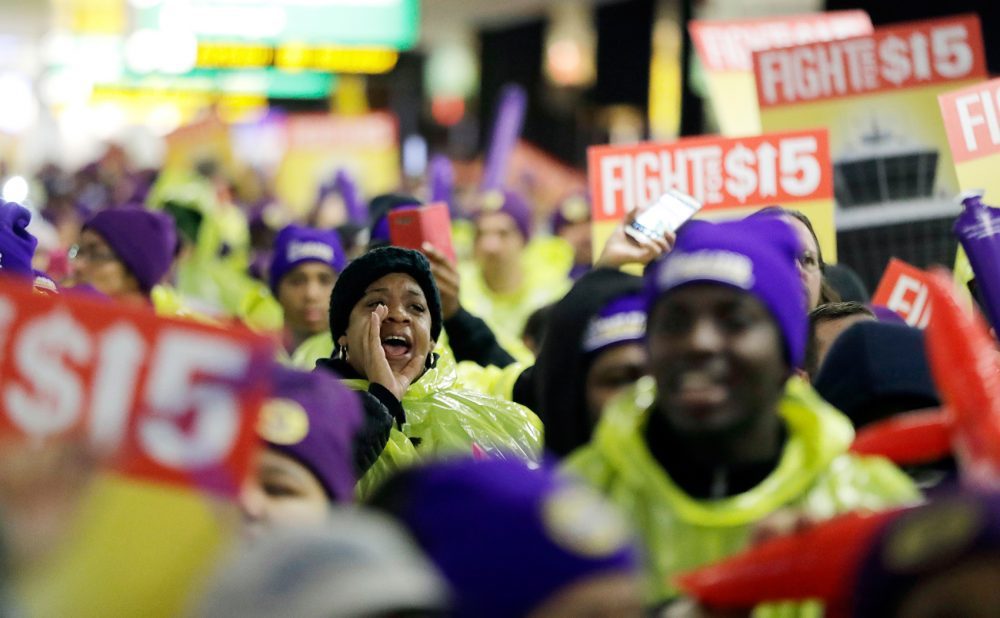Advertisement
AG Healey Says 21 Ballot Petitions Pass Constitutionality Test

Massachusetts Attorney General Maura Healey says 21 proposals have passed constitutional muster and can move forward in the ballot question process.
Of the proposals Healey says meet constitutional requirements -- including petitions to raise the minimum wage and lower the sales tax -- 20 are aiming to make the 2018 ballot, a statement released by her office said Wednesday.
The remaining certified petition vies for a constitutional amendment and faces a more complicated and lengthy approval process.
The statement said the approved petitions cover 18 different topics, including clean energy, political spending and paid family and medical leave. Some groups filed multiple proposals on the same subject, the office said.
Specifically, questions approved include a measure that would require presidential and vice presidential candidates to release their tax returns for the prior six years in order to make it onto the Massachusetts primary ballot.
The minimum wage initiative moving one step closer to hitting the 2018 ballot would incrementally raise the state's pay floor until it hits $15 an hour by 2022.
The proposed constitutional amendment would permit the state to "exclude abortion services from state-funded health care," according to the AG's office.
This now-certified plan for a constitutional amendment regarding abortion services and state funds would need at least 25 percent support from the Legislature next year and once again in 2018-2019 before it could appear on the November 2020 ballot, according to the statement.
Supporters of the rest of the approved questions will need to gather signatures from 64,750 registered voters by Dec. 6 before they can make it on the ballot.
Seven of the 28 petitions filed, including proposals to end tolling in Massachusetts and require insurance coverage for holistic health care, were not certified because they did not meet requirements, Healey's office said.
Backers of the petitions that were not certified can appeal the attorney general's decision to the Supreme Judicial Court.
In 2016, four of the 35 petitions originally filed ultimately ended up on the ballot, three of which survived court challenges along the way.
With reporting from the WBUR Newsroom and State House News Service